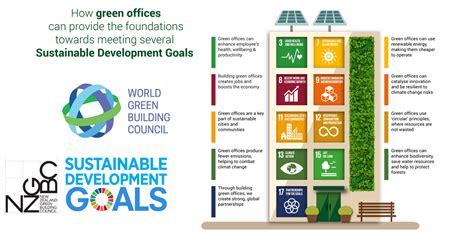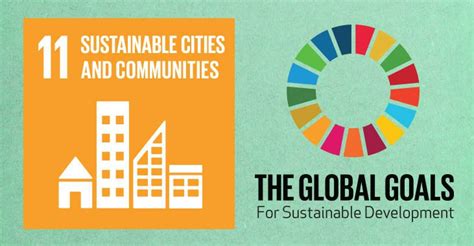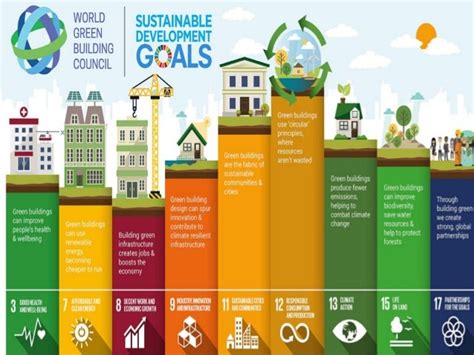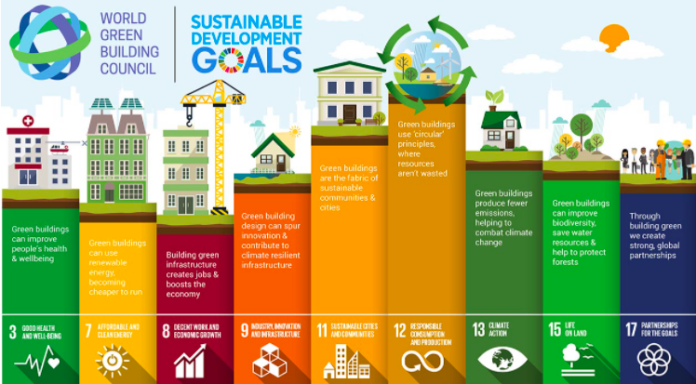The United Nations Sustainable Development Goals (SDGs) serve as a global blueprint for tackling pressing issues like climate change, global warming, and the carbon footprint. This article explores the pivotal role of the SDGs in guiding international efforts to mitigate climate change and advance renewable energy solutions. By examining key milestones achieved and global initiatives aimed at reducing greenhouse gases, we gain insight into the progress made and the challenges that remain. We will also delve into how sustainable development strategies are crucial in combating climate change and shaping a healthier, more resilient planet for future generations.
Let’s investigate this topic extensively with gameslino.com
1. Introduction to UN Sustainable Development Goals (SDGs)
The United Nations Sustainable Development Goals (SDGs), adopted in 2015, are a global call to action designed to tackle the world’s most pressing challenges, including climate change, poverty, and inequality. These 17 goals aim to foster international cooperation and drive progress towards a sustainable future. A key element of the SDGs is the commitment to combat climate change through collaborative efforts to reduce greenhouse gas emissions, promote renewable energy, and enhance resilience to climate-related impacts. The SDGs emphasize the importance of integrating environmental sustainability into development strategies, highlighting the necessity of a collective approach to ensuring a balanced and equitable response to the climate crisis. By aligning global policies and initiatives with these goals, the SDGs provide a framework for advancing both environmental and socio-economic sustainability.

2. Key Milestones Achieved
Since the adoption of the United Nations Sustainable Development Goals (SDGs) in 2015, several key milestones have marked significant progress in addressing climate change. One notable achievement is the Paris Agreement, which brought nearly 200 countries together in a historic commitment to limit global warming to well below 2°C above pre-industrial levels. The agreement has spurred national action plans, increased climate finance, and fostered international cooperation. Additionally, the SDGs have led to the establishment of numerous climate action programs, promoting renewable energy investments and advancements in green technology.
The proliferation of renewable energy sources, such as wind and solar, reflects the success of these initiatives, with global capacity expanding rapidly. The adoption of sustainable practices in various industries and cities has further demonstrated the effectiveness of SDG-driven policies. These milestones not only showcase progress but also highlight the continued need for collective action to meet the ambitious targets set by the SDGs and ensure a sustainable future for all.

3. Global Efforts to Address Climate Change
Since the establishment of the United Nations Sustainable Development Goals (SDGs), global action on climate change has intensified. Countries around the world are enacting policies to cut greenhouse gas emissions, increase energy efficiency, and promote sustainable practices in all sectors. The Paris Agreement serves as a central pillar in this endeavor, uniting nations in their pledge to limit global temperature increase and build climate resilience.
The shift away from fossil fuels is gaining momentum, driven by increased investment in renewable energy technologies like wind, solar, and hydropower by governments and organizations. Initiatives such as the Climate Finance Mechanism are crucial in supporting developing countries’ efforts to combat climate change by providing financial aid for mitigation and adaptation. Furthermore, cities and regions are embracing climate action through sustainable urban development, enhanced public transportation, and the implementation of green infrastructure.
International cooperation is paramount, bringing together intergovernmental organizations, non-governmental organizations, and the private sector. These partnerships foster innovation, disseminate best practices, and mobilize resources, thereby strengthening the global response to climate change and accelerating progress towards the Sustainable Development Goals.

4. Impact of Greenhouse Gas Reduction Initiatives
Greenhouse gas reduction initiatives have had a profound impact on mitigating climate change and advancing global sustainability goals. Significant strides have been made through various measures, including the implementation of emission reduction targets under the Paris Agreement and the adoption of national and regional climate policies. These efforts have led to a notable decrease in carbon emissions in several industrialized nations, contributing to a slower rate of global warming.
Renewable energy projects, such as wind and solar farms, have played a crucial role in reducing reliance on fossil fuels, resulting in cleaner energy production and lower carbon footprints. The expansion of energy-efficient technologies and practices across sectors has further diminished greenhouse gas emissions.
Moreover, innovative carbon capture and storage techniques are helping to address emissions from industries that are challenging to decarbonize. Overall, these initiatives not only support climate goals but also foster economic growth by creating green jobs and promoting technological advancements, demonstrating their significant and multifaceted impact on global climate efforts.
5. Promotion of Renewable Energy Solutions
The promotion of renewable energy solutions has been a central focus in the global effort to combat climate change and achieve the United Nations Sustainable Development Goals (SDGs). Investments in renewable energy technologies, such as solar, wind, and hydro power, have surged, driven by both public policies and private sector innovation. These technologies are crucial for reducing dependence on fossil fuels and cutting greenhouse gas emissions.
Governments worldwide are implementing incentives and subsidies to accelerate the adoption of renewable energy. Initiatives like feed-in tariffs and tax credits support the development and integration of renewable energy sources into national grids. Additionally, advancements in energy storage and grid management are enhancing the reliability and efficiency of renewable energy systems.
The expansion of renewable energy infrastructure not only contributes to cleaner energy production but also generates economic benefits, including job creation and technological advancements. These efforts are pivotal in transitioning to a sustainable energy future and meeting global climate objectives.
6. Challenges in Meeting Climate Goals
Despite significant progress, several challenges hinder the achievement of climate goals set by the United Nations Sustainable Development Goals (SDGs). One major challenge is the continued reliance on fossil fuels, which remains prevalent in many regions due to economic and infrastructural dependencies. Transitioning to renewable energy sources requires substantial investment and overcoming entrenched interests, complicating efforts to reduce greenhouse gas emissions.
Another obstacle is the disparity in climate action capacities between developed and developing nations. While wealthier countries can afford advanced technologies and infrastructure improvements, developing nations often lack the financial resources and technical expertise needed for effective climate mitigation and adaptation. This disparity can hinder global progress and exacerbate climate inequalities.
Additionally, political and regulatory uncertainties can stall or reverse climate policies. Changes in government leadership or policy priorities can disrupt long-term climate strategies and investment plans.
The integration of renewable energy into existing energy grids also poses technical challenges, including the need for enhanced grid infrastructure and energy storage solutions. Addressing these challenges requires coordinated global efforts, robust policy frameworks, and continued innovation to ensure that climate goals are met and a sustainable future is secured.
7. Role of Sustainable Development in Combatting Climate Change
Sustainable development is key to fighting climate change. It combines environmental responsibility with economic growth and social well-being. The United Nations Sustainable Development Goals (SDGs) underscore the need to balance these three elements to achieve long-term resilience to climate change. By encouraging sustainable practices, like energy efficiency, resource conservation, and sustainable agriculture, we can lower greenhouse gas emissions and lessen the effects of climate change.
Sustainable development promotes the use of clean technologies and renewable energy sources, facilitating a shift away from fossil fuels and minimizing carbon emissions. It also emphasizes the creation of robust infrastructure and communities that can withstand and adapt to climate-related threats.
Furthermore, sustainable development fosters equitable growth by tackling social and economic disparities, guaranteeing fair distribution of climate action benefits. This approach supports the generation of green jobs and inclusive economic opportunities, thereby contributing to overall societal well-being.
Sustainable development offers a comprehensive approach to tackling climate change and safeguarding a healthy, resilient planet for future generations. It achieves this by harmonizing economic growth with environmental protection and social equity.
8. Future Outlook and the Path Forward
The future of climate action hinges on unwavering commitment and ongoing innovation. Achieving the United Nations Sustainable Development Goals (SDGs) will be paramount in guiding global efforts to combat climate change. Technological advancements and the expansion of renewable energy sources will be essential drivers of progress. Sustained investments in clean energy infrastructure and energy efficiency initiatives are poised to deliver substantial results.
To conquer the climate crisis and meet our ambitious targets, a collaborative effort among governments, businesses, and communities is paramount. Strengthened international cooperation and increased climate financing will be crucial in empowering developing nations to advance their climate initiatives, ultimately closing the gap in global climate action.
Our journey towards a sustainable future requires a multi-pronged approach. We must scale up initiatives that have proven successful, embrace more ambitious climate policies, and cultivate a culture that prioritizes sustainability. By leveraging existing accomplishments and confronting new challenges head-on, we can forge a path towards a planet that is both resilient and environmentally responsible.
gameslino.com

